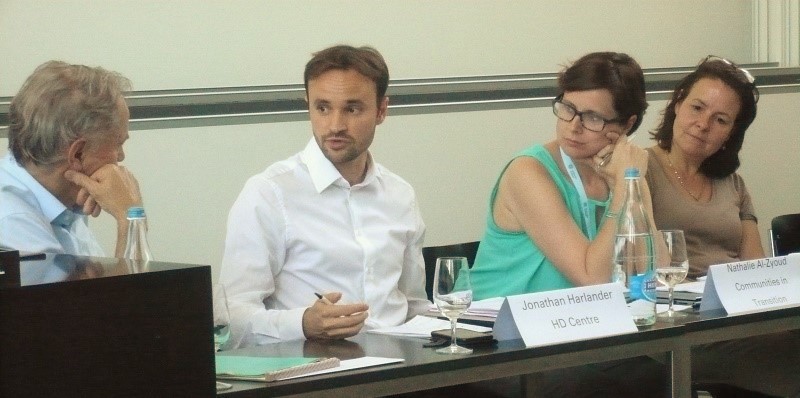Syria BRICC IDIQ
As part of a consortium led by IDS International, CIT won the Building Resilient and Inclusive Communities in Conflict (BRICC) IDIQ issued by USAID to foster resili

Faced with armed conflict and violent unrest, civilians in war zones are left vulnerable to threats of violence and great deprivations. While humanitarian organizations working in conflicts areas provide lifesaving emergency services in sometimes highly volatile contexts, many are increasingly realizing that these activities are not enough for citizens yearning for security and a return to normalcy. This latter task is often relegated to the State and Track-I actors. But peace processes can take years to stabilize a country and while underway often limit themselves to resolving political dynamics in the capital. In the meantime, citizens in the rest of the country are suffering at the hands of armed men perpetrating daily atrocities and horrendous human rights violations.
Not without controversy, international NGOs have started venturing into the conflict resolution space to help resolve local clashes around land, security, economic and displacement issues. Entering this new programmatic area is not happening without generating fears and opposition from traditionalists and hard core humanitarians.
This paper, presented at the International Conference on Mediation (June 2016) organized by Swisspeace at the University of Basel in Switzerland, looks at the challenges faced by humanitarian organization as they explore providing emergency mediation services for the protection of civilians. It looks at the risks conflict resolution dialogue processes can pose to participants and their communities; to mediation staff and their operations; as well as assess the potential risks of exacerbating conflict dynamics. The paper also examines mediation approaches and strategies that can help mitigate these risks. Risks are inherently present in all conflict environments and, as with any other NGO programs, should be weighed against the benefits of improving the lives of civilians in war zones.
